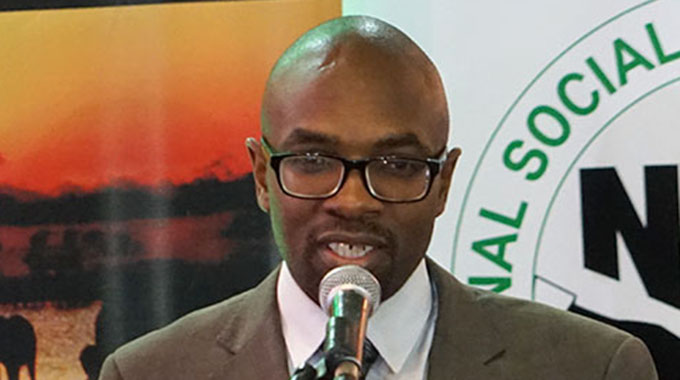TNF talks hit deadlock over salaries

Cletus Mushanawani Senior Writer
Tripartite Negotiating Forum (TNF) talks on salaries and wages reached a deadlock yesterday, with the Government and labour on one side agreeing that there should be a minimum wage, while business rejected this.
Yesterday’s meeting was the second among the parties to the TNF following Wednesday’s meeting and it was anticipated that the three would find each other and come up with a position to cushion workers and spur economic growth.
Public Service, Labour and Social Welfare Minister Professor Paul Mavima, who chaired the meeting, and Zimbabwe Congress of Trade Union (ZCTU) president Mr Peter Mutasa confirmed the deadlock, while business representative, Mr Sifelani Jabangwe said he wanted to brief his constituency before issuing a statement.
The process of aligning wages and prices dominated Wednesday and yesterday’s meetings.
Prof Mavima described the salaries and wages issue as an urgent matter which he would take to next Tuesday’s Cabinet meeting for guidance.
“We did not finish our deliberations on Wednesday because there was an issue of how we can address the erosion of wages of workers across the board in this country. We came back today (yesterday) to discuss that issue.
“We are very close to actually reaching a consensus. We want to take the issue to Cabinet so that it will make the necessary decision on the issue of the erosion of wages and salaries of the workers of this country.
“We are doing that in full cognisance of the fact that we are a country that needs to stabilise its economy and also that we are a country that needs to grow its economy towards attaining Vision 2030 that His Excellency, President Mnangagwa has articulated which is achieving an upper middle income economy by 2030,” said Prof Mavima.
He said there was need to balance between making sure that workers were compensated at a level where they would be motivated to continue offering their labour to the development of the country, but at the same time making sure that businesses remain viable.
“We need to increase capacity utilisation of businesses so that the economy can grow and we are hoping that when I go to Cabinet to make these presentations, Cabinet will give us the necessary guidelines and will make specific decisions on this particular issue,” he said.
Mr Mutasa said he was disappointed that business had failed to appreciate the need to adequately remunerate the suffering workers.
“We are disappointed by the stance being taken by business which is not appreciating the dire needs of workers. We are not happy with the way they are taking this issue of giving workers a minimum wage that will cushion them.
“We appreciate the stance that has been taken by Government who are on our side saying there should be a minimum wage that will take into account the erosion of wages since the promulgation of Statutory Instrument 412 of 2019.
“We have hit a deadlock and failed to agree mainly because Government and labour are on one side and business is against the proposal from Government and labour. We reserved our rights and we will mobilise workers and consult them to come up with a good response to the business intransigence,” he said.
Mr Mutasa said they await the Government’s decision on the issue before mapping the way forward.
“Government has promised to take this matter to Cabinet on Tuesday, so we are going to hear from them. We are giving ourselves two to three weeks as labour to consult workers on the current position and we will get direction from them. What we know is that workers are not happy, they are struggling. People are failing to pay rentals and schools fees. They can’t buy food, so workers have already indicated to us that if this thing fails, we must protest against the business community,” he said.
SI 142/19 was put in place to compliment SI 133 which came to establish the exchange rate between the Zimbabwe dollar and other currencies.
On the issue of civil servants’ salaries, Prof Mavima said the Government would continue engaging unions to ensure that both parties agree on the salary structures.
“There is already joy for civil servants. Remember that about a week ago, we agreed on a certain compensation level with a minimum of $2 500 for the least-paid civil servant and then scaled upwards depending on what grade levels they were. That was agreed upon by the National Joint Negotiating Council,” he said.










Comments